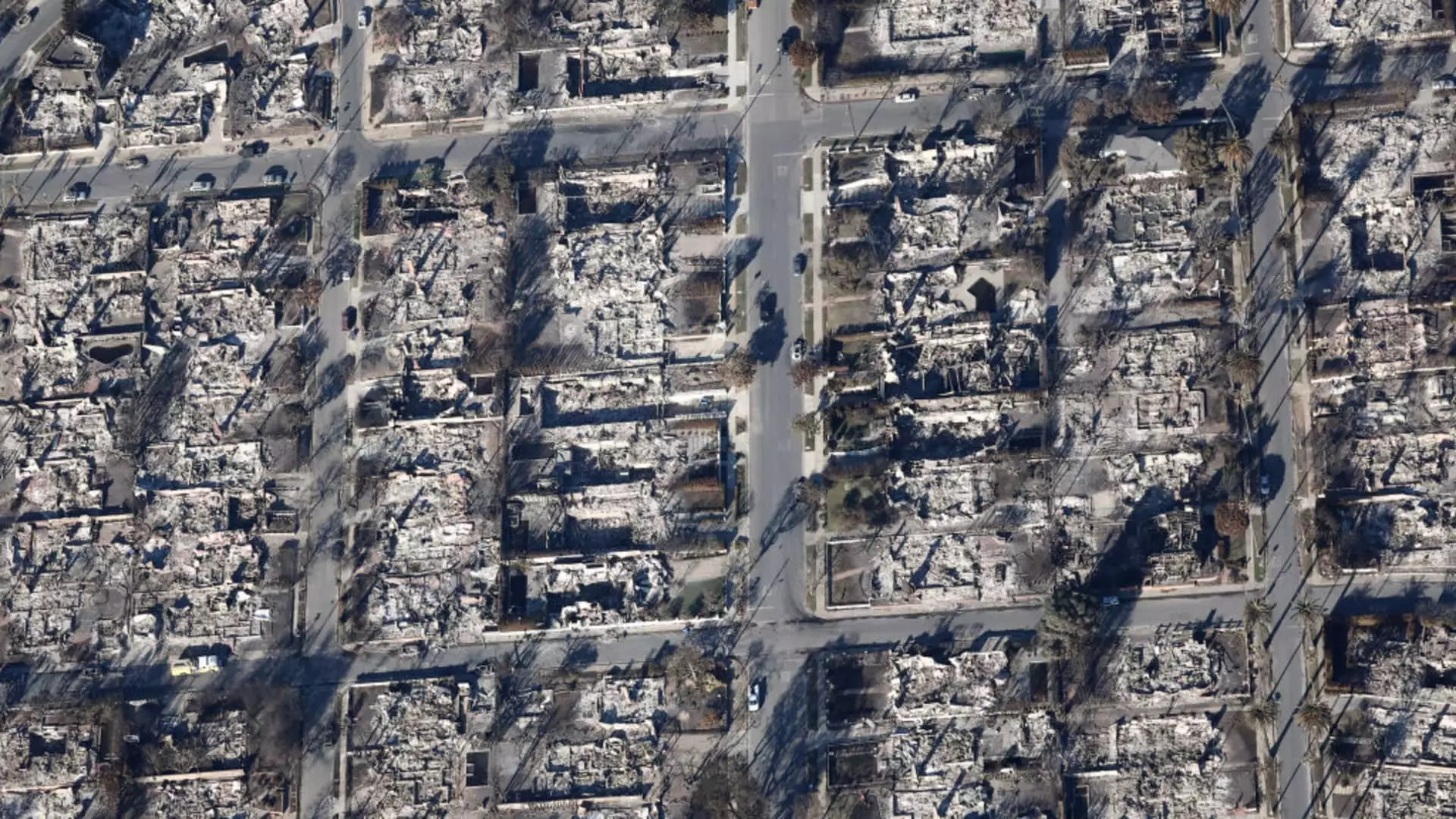In the aftermath of wildfires that swept through the Los Angeles area, families like that of Joe Thompson find themselves in a precarious situation, scrambling to secure shelter. Thompson, a 44-year-old trader, was forced to suddenly shift his family’s living situation after their neighborhood in Pacific Palisades was severely impacted. Despite his home remaining intact, uncertainty about damage and return timelines leaves him and his partner in search of a new place to call home. Their encounter with rental listings reflects a grim reality: a five-bedroom property in Santa Monica recently listed for $28,000 a month—an astronomical amount, especially when compared to last year’s rates. Faced with exorbitant prices and stipulations demanding multiple months’ rent up front, Thompson concluded that the rental market was not conducive to their needs and continued his search.
The still-ongoing recovery from the wildfire crisis has driven home rental prices up dramatically across Los Angeles, underscoring an existing housing shortage that has only worsened. The city has seen a spike in demand for short-term rentals as families displaced by the fires seek temporary refuge. Notably, many landlords are reportedly raising prices beyond legal limits, taking advantage of the desperate situations of those affected by the disaster.
This trend in rising rental costs, which often violates California’s price-gouging laws imposed during states of emergency, is not just a financial inconvenience—it exacerbates a dire situation for vulnerable populations. State Assemblymember Jacqui Irwin has condemned these actions, emphasizing the moral and legal implications of capitalizing on the suffering of others. In addition to those who lost their homes, many renters find themselves in a bidding war for limited available units, increasing competition and inflating rental prices.
Real estate experts highlight this price surge as particularly devastating for families who previously rented, as they are now tasked with finding alternative housing amid skyrocketing costs. Brock Harris, a local real estate professional, noted how homeowners who may not have been familiar with current market fluctuations are now trying to capitalize on this unprecedented scenario, resulting in a chaotic environment where families like Thompson’s may find themselves offering one year’s rent upfront just to secure a place to live.
The fallout from the wildfires compounds an already existing problem—a severe housing crisis in Los Angeles, which was already grappling with issues of affordability and availability prior to the disaster. Reports have surfaced of landlords seeking to maximize profits by increasing rental prices by staggering margins well over the mandated 10% during emergencies. These occurrences paint a sad picture of opportunistic behavior in the face of widespread loss and require urgent attention from state authorities to protect residents from exploitative practices.
A recent analysis of the situation highlighted numerous instances of rental listings with price hikes far beyond legal limits. One four-bedroom rental saw a staggering 24% increase while another three-bedroom property near the iconic Hollywood sign jumped by an alarming 45%. Such drastic changes exacerbate the housing crisis and illustrate the need for better regulatory measures to control price gouging, particularly during emergencies.
Nevertheless, amidst the darkness of exploitation, there are glimmers of hope that shine through the stories of generosity and community solidarity. Organizations such as Airbnb.org are mobilizing efforts to provide free temporary housing for victims, working in tandem with local nonprofits. Many landlords are reportedly choosing to maintain rental prices or even offer lower rates to those affected, demonstrating that empathy still exists within the community.
For individuals like Tannis Mann, who lost her home in Pacific Palisades, the experience has enabled her to witness compassionate acts in these testing times. Her dedication to crossing off inflated rental listings from her search reflects a growing consciousness among potential tenants who refuse to support exploitative landlords.
However, not all families are as lucky. Ashley and Tim Polmateer, whose home was consumed by flames, are now navigating a difficult search with no satisfying outcomes. As they consider temporary arrangements in an Airbnb, the uncertainty of finding a permanent residence weighs heavily on them.
Thompson’s ongoing search for housing amidst this chaos illustrates an unsettling truth: families have been driven into a state of constant insecurity, facing pressure not only to find shelter but to compete in an increasingly hostile rental landscape. The accompanying trauma of losing one’s home and the accompanying stress of finding a new one amid a crisis creates a perfect storm of challenges.
As the winds of change blow through California, it becomes evident that a renewed focus on housing policy is necessary—one that prioritizes affordability and stability in the face of natural disasters. Protecting the most vulnerable populations from the whims of a volatile rental market must be a collective priority. Ultimately, the resilience of a community largely hinges on the ability to support and uphold each other during times of dire need, ensuring that compassion prevails over opportunism.

